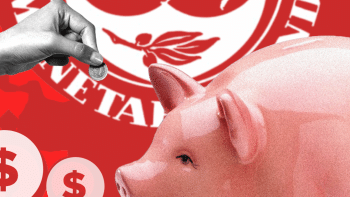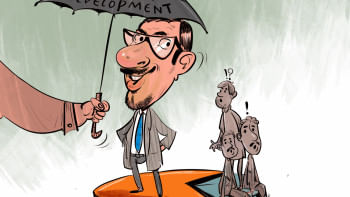Could we have avoided the current economic crisis?

For years, we boasted about steady economic growth and the resilience of our economy, all the while ignoring repeated warnings from economists and others that such growth would be unsustainable in the long run unless some major reforms were undertaken, particularly in the financial and energy sectors. Did we think the economy was invincible, as we took one disastrous decision after another, prioritising the self-serving interests of some vested quarters over that of the general public and eroding the pillars of crucial institutions in the process? Now, Bangladesh faces an unprecedented crisis, with surging inflation, fluctuation in the exchange rate, depleting reserves, growing unemployment, rampant inequality and rising food insecurity threatening the very stability of our economy and the well-being of our people.
In a recent roundtable organised by The Daily Star, noted economists highlighted that while the Russia-Ukraine war may have triggered the current crisis to some extent, Bangladesh could have predicted and prevented much of its fallout had the government addressed the longstanding issues afflicting the major sectors. Experts have long warned against – as have we, in this very column – the growing number of non-performing loans, extravagant spending and wastage on megaprojects, poor tax-GDP ratio, lack of financial independence of the central bank, failure to adjust interest rate to reflect the current economic reality and the dangers of artificially propping up the taka's value against the dollar, to name just a few. Our policymakers chose to remain oblivious of the forewarnings, and now, unfortunately, it is the public who must answer for their callousness. It is ironic that the International Monetary Fund (IMF) are now prescribing much of the same conditions to avail its USD 4.5 billion loan as had previously been suggested by our economists.

The question, moving forward, is whether our policymakers have learnt anything at all from a decade of poor governance, which left us vulnerable to such external shocks, and if they are willing to redress their past mistakes in light of the volatile situation of their own making. Thus far, the government has failed to produce a clear and comprehensive policy package, in consultation with relevant stakeholders, that provides a roadmap of how to come out of the current crisis. The piecemeal solutions it has taken over the past few months, such as import control or marginal adjustment of annual development programme, are simply not enough to address the severity of the problems facing the nation.
First and foremost, the government needs to come out of its mode of denial. Without any further delay, it must develop a transparent and comprehensive policy package that judiciously tackles the interconnected issues afflicting the economy. It ought to make the interest rate and exchange rate flexible, and take necessary fiscal measures to offshoot any potential instability as a result. It must get rid of subsidies from some sectors, such as capacity charges to quick rental power plants, while prioritising subsidies in others, such as agriculture. In the meantime, to protect the people from the ongoing inflationary pressure and impending food insecurity, it must expand its social safety net programmes and increase distribution of subsidised goods. The real question is: do we have the political will to rescue the economy and the people from a catastrophe?


 For all latest news, follow The Daily Star's Google News channel.
For all latest news, follow The Daily Star's Google News channel. 






Comments